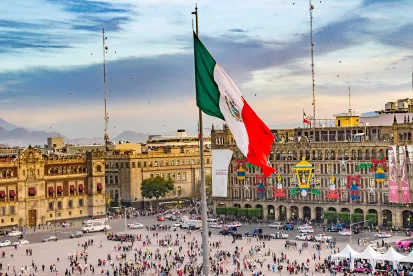After several months of discussion and uncertainty, on November 3, 2022, Mexico’s Senate of the Republic approved a bill that would modify articles 76 and 78 of Mexico’s Federal Labor Law (FLL) to entitle employees to more paid vacation days.
Mexico is currently one of the countries in the world with the fewest number of paid vacation days for employees, yet Mexican employees work more hours on average than other workers in the Western Hemisphere—an average of 2,255 hours yearly. Since 2018, with the implementation of Mexico’s Ministry of Labor and Social Welfare’s (STPS) Official Standard 035, “Psychosocial Risk Factors at Work—Identification, Analysis and Prevention” (NOM-035-STPS-2018), the Mexican government has been making advancements to create more balance between work and life and prevent future consequences for employees, such as burnout syndrome and work-related illnesses.
If enacted as approved by the Senate, the measure would allow employees to accrue vacation leave as follows:
| Current Leave Accrual | Proposed Leave Accrual | ||
| Years Worked | Vacation leave employees are entitled to | Years Worked | Vacation leave employees are entitled to |
| 1 | 6 days | 1 | 12 days |
| 2 | 8 days | 2 | 14 days |
| 3 | 10 days | 3 | 16 days |
| 4 | 12 days | 4 | 18 days |
| 5 to 9 | 14 days | 5 | 20 days |
| 10 to 14 | 16 days | 6 to 10 | 22 days |
| 15 to 19 | 18 days | 11 to 15 | 24 days |
| 20 to 24 | 20 days | 16 to 20 | 26 days |
| 25 to 29 | 22 days | 21 to 25 | 28 days |
| 30 to 34 | 24 days | 26 to 30 | 30 days |
| 31 to 35 | 32 days | ||
Even though the Senate has approved the bill, it still needs to be reviewed and approved by Mexico’s Congress of the Union and eventually by the executive branch before being published, at which point it would become enforceable. Therefore, changes to the bill can still be made, and an effective date cannot yet be defined. However, the bill is moving quickly and the government appears to be willing to make the new vacation leave regime enforceable by 2023.
Approval of the reform would come with several consequences, including economic impact to employers when paying vacation premiums, modification of leave policies, and company retention plans. Additional consequences would include a cultural shift that may help prevent work burnout, increase productivity, and promote more dignified labor conditions for employees in Mexico.





 />i
/>i

